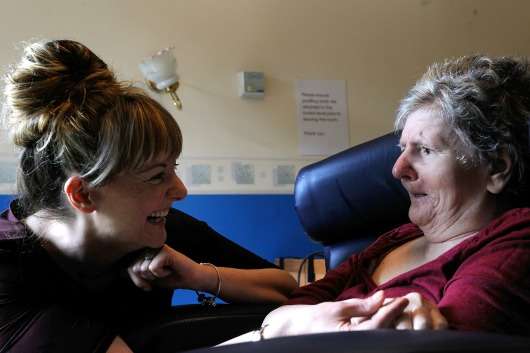New communication technique helps people with dementia

People with advanced dementia could be helped to interact through a non-verbal communication technique known as 'Adaptive Interaction', researchers at the University of St Andrews have discovered.
In the latter stages of dementia, those living with the condition can lose the ability to use and understand spoken language, however the new research has found an alternative way to facilitate connection and bring comfort.
Published in the journal PLOS One (Public Library of Science), the new research found Adaptive Interaction, which includes reciprocating the movements and vocalisations of those with advanced dementia, could help improve communication.
As individuals with advanced dementia lose their ability to produce and understand speech, they can appear to have lost the ability to communicate altogether. As such, caregivers typically reduce their attempts to communicate, leaving people with dementia socially isolated.
The new study showed positive responses from individuals with dementia to this "behaviour matching" technique, who then demonstrated increased communicative behaviours. Adaptive Interaction encourages caregivers to communicate by using the non-verbal "language" that is unique to each individual with dementia.
Dr Maggie Ellis of the School of Psychology and Neuroscience at the University of St Andrews, said: "We have seen amazing results when using each individual's non-verbal language – people laughing when they didn't before, showing more interest and increasing the physical contact they have with those around them.
"Although they cannot speak, these people are still there, and they are left with a set of fundamental communication skills that we can use to communicate with them."
The study found that individuals with advanced dementia who cannot speak, retained the ability to interact via a variety of nonverbal techniques such as eye gaze, expressing emotion and various movements.
More information: Maggie Ellis et al. Communicating with people living with dementia who are nonverbal: The creation of Adaptive Interaction, PLOS ONE (2017). DOI: 10.1371/journal.pone.0180395


















